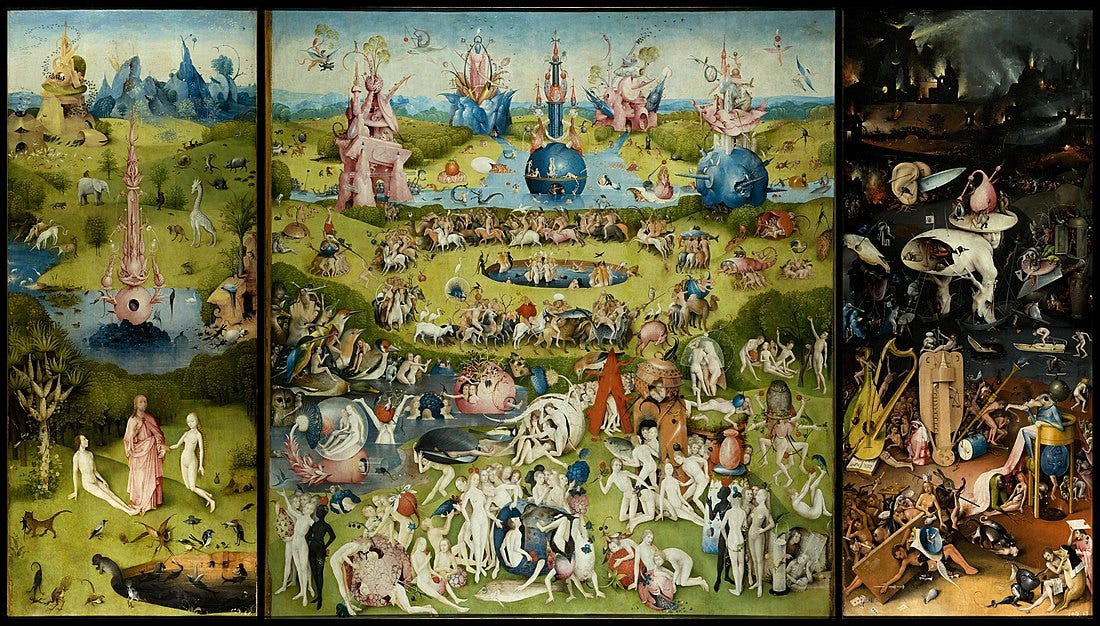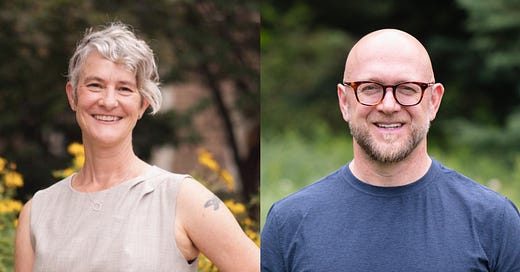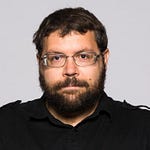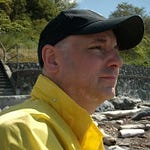Dear Friends,
This post is a conversation between
and me. If you haven’t discovered Liz’s Substack, , I urge you to check it out.Liz and I both left tenured faculty positions two years ago. Liz was a Biology professor at Washington University in St. Louis, and I was an English professor at Central College, in Iowa. While we both left because we’d lost faith in higher ed, we know that a college education will be important for our children. Now we are wrestling with how to help our kids navigate what we know to be a broken system. Will they have the same chance at self-discovery that we did?
If you are a parent, we’d love to hear your thoughts on how you plan to tackle the college search with your kids, or whether you plan to redirect your energy and resources elsewhere.
Josh
Leaving Academe Is Fine, But What About Your Kids?
Liz: I can’t imagine who I’d be without the intellectual and social aspects of college. Those four years were absolutely foundational to my personal identity. As someone felt she was becoming her actual self through the experience of being in college, I naturally want that same experience for my child, Griffin. But…would he even get that anymore?
Josh: Exactly right. Would Griffin have the same experience? Does it exist anywhere in the way it did for us just two decades ago?
I was speaking to a friend recently who is a lecturer at a regional university in North Carolina. We both attended a Presbyterian college in rural Tennessee. He went on to seminary, and wanted to complete a Ph.D., but his advisor said that if he could do anything else for money, he should, and keep his studying on the side. So he went on to a successful career in IT, largely serving hospitals, and is only now circling back to higher ed.
But his institution is undergoing the same cuts that are bedeviling universities everywhere, and it's exhausting him. I had been jokingly comparing him to a seagull landing on the sinking ship after rats like me had already scurried away. But I spoke to him last weekend while he sipped a bourbon on his porch, and he confessed that he felt very much like a rat.
This feeling stems from precisely what you describe in your own awakening. Our little college billed itself as a place for the mind. Nobody was angling to be a Nobel winner or anything, but ideas drove the discourse all over campus. It was egalitarian, too — I never had a sense of class conflict or extreme gaps in privilege. Everyone lived in the same dorms, endured the same communal showers, ate at the same dank cafeteria. The amenities were not what it was about for us. And my friend and I both feel, looking back, that we might have been shielded too much in that environment from how the world really is, or at least how it has evolved.
Liz: I had a few of those communal experiences as well, living in big houses with other women. But I entered University of Washington as part of the honors program, with smaller classes and different requirements than the rest of the students, and of course, there was the Greek System, so there was always a sense of hierarchy, one that I was (not coincidentally) at the top of.
In fact, I’ve been wondering lately how much of my sense of an institutional shift over the past few decades comes from something that happened in the academy over time, and how much has to do with the different types of institutions I attended. As an undergraduate, I chose to go to a large state school where I could almost put myself through with scholarships and paid lab work. I went to graduate school at a state school, but in a program that was ranked in the top 5. Then my postdoctoral work and tenure track positions were at relatively elite private universities. So I’m comparing my experience as an undergraduate at UW in Seattle in the early 90s with what I infer about undergraduates at a small private midwestern university in the post-COVID 2020s. There’s so much that’s different between those two! I did not see many students at Wash U having the experience I did so many years ago, but that doesn’t mean there aren’t places like that.
Josh: I know of no environment where my own children would enjoy the awakening that we did. Private colleges aren't offering it: they are offering paths to industry. The elite schools are so competitive that students carry that awareness of scarcity into their classes. And many of them, as I read recently in the New York Times, have to hone their personal brands as applicants by the start of their freshman year, or even earlier — some advisors recommend doing that by junior high. Many students who come from wealth feel intense pressure to replicate the success of their parents or grandparents, and so even privilege is no guarantee of freedom for self-exploration. Students who assume enormous debt don't have the luxury of following their passions the way that I did. And they are taught by faculty who feel increasingly under assault, vulnerable to a relentless drumbeat of crisis.
Liz: I do think it’s harder for universities to be a place of self-discovery now; students seem far more aware of the problem of debt and many are more focused on getting job training than we were. They also seem more aware of and motivated by the problems of our world and want to contribute to solutions. I don’t think they feel allowed to follow their curiosity or just learn something for the sake of learning it.
And, as you say, many faculty are distracted by the escalation of publishing and tenure requirements, and at many schools by political onslaughts, so they aren’t always a lot of help. Ironically, I get the sense that far more young people NEED that self-discovery time as Covid and post-Covid education was watered down in ways that were probably appropriate at the time but had some permanent effects.
From a scene in The West Wing, where politicos try to wrangle a predictable outcome from investing in a billion-dollar superconducting supercollider.
Sen. Jack Enlow, D-IL: If we can only say what benefit this thing has. No one's been able to do that.
Dr. Dalton Millgate: That's because great achievement has no road map. The X-Ray is pretty good, and so is penicillin, and neither were discovered with a practical objective in mind. I mean, when the electron was discovered in 1897, it was useless. And now we have an entire world run by electronics. Haydn and Mozart never studied the classics. They couldn't. They invented them.
Sam Seaborn: Discovery.
Dr. Dalton Millgate: What?
Sam Seaborn: That's the thing that you were... Discovery is what. That's what this is used for. It's for discovery.
Josh: The Covid effect and the ongoing debate about online learning (whether it’s as effective as in-person education) is a can of worms. But I think we ignore the personal aspects of education at our peril. It’s not just that young people need that space for discovery — it’s that we see the consequences, in industries like technology, of ignoring the complexity of human experience. If humans are nothing more than clicks or financial transactions to be manipulated by marketers or SEO optimizers, then we see things like worse products, worse search results, outcomes that make money, but that leave us hollow and frustrated.
This is partly what is still fueling the Great Resignation, or what some are now calling “hashtag exodus.” People with options — or people destroyed by burnout — continue to leave, as we did. Many of those positions will either be cut altogether or replaced by lecturers who can be let go as needs change. The positions that remain will likely be filled by younger academics who haven't yet hit the brick wall. But even if the teaching gets done, there is a serious drain of talent from the profession right now that bodes ill for the quality of education that your child and my children will receive.
Liz: So many people, especially women my age, are leaving or contemplating it. They are just burnt out on everything that they are asked to do beyond just research and teaching and it’s just too many years to hang on until retirement. SO many committees and things to organize! This academic housekeeping doesn’t seem to fall on the shoulders of men in the same way. And for everyone, there’s just such an escalation of tasks and needed skill sets that the kernel of academic interest that got many of us into the job is just buried under everything else. And I hear generally such a sense of futility about anything that needs changing, a kind of helplessness in the face of a really dehumanizing system.
I am not sure what will happen as this “leaky pipeline” drains the sciences of senior women. BUT on the bright side, I am encouraged to see so many young faculty members stepping up, young faculty who are really motivated and excited and willing to take on some of the student pastoral care that I was never very good at. They are so innovative and enthusiastic and dedicated! So I have some hope that they will be able to take over that work in the future and do a better job than my generation ever did.
Josh: I was one of those young professors once — just 29 when I landed my tenure-track role. The difference then was that my institution valued me for my passion and for my disciplinary expertise. I was fortunate to have had a hand in hiring two idealistic colleagues shortly before my departure. But they both share my deep frustration with the shift in institutional priorities. They came to the profession with more than a kernel of intellectual interest! My colleague Valerie, who I interviewed for a piece on how younger faculty are setting work boundaries, is still fighting the good fight. But she has to approach her work with much more caution than I did if she hopes to make it thirty more years in the profession.
Liz: It really is frightening to watch the far right systematically dismantling academia. Not that we haven’t done a lot of this to ourselves, but the pace is startling. My friends in Indiana and Florida predict a huge departure of faculty, but I wonder if that will actually happen. There are so many people who want positions that I think even these undesirable positions will get filled.
Josh: There's no doubt that Christopher Rufo is out to burn the whole thing down, and he is doing this with the help of governors like Kim Reynolds and Ron DeSantis. The cover story in The Chronicle a few weeks ago was explicitly concerned with the implications for higher ed if Trump were to win in November. But the left doesn't believe in the system either — it's shooting itself in the foot with "decolonize the university" rhetoric, the same way the "defund the police" movement forfeited the public sympathy it once held. Meanwhile, the Gordon Gees are trying to corporatize everything. As one WVU professor put it, college leaders like Gee are not allowing students to have the same kind of education that they did. That is a pretty serious irony — the current generation of leadership was molded by the classic liberal arts model, but they are selling that birthright for branding.
Liz: An opinion essay in the NYT called “College Students: School is not Your Job” back in September made me think about the pros and cons of the way I revamped my main class, “Plant Biology and Genetic Engineering,” in the 2020’s. I turned it from a class that was mostly about the biology of plants into a class about the utility of plants. I flipped it so that there were no more (or just very short) lectures and the students did a lot of the reading and preparing at home. In the end the class had very little content, and hardly anything that would be considered challenging. It went from just a handful of students to being oversubscribed every year.
I really felt torn about these changes. On the one hand, it’s good to meet students where they are. As I mentioned earlier, I think students have a sense of urgency to use their education to fix things. In a way, it’s a luxury to imagine just learning things for the sake of learning them. While it’s possible that students walked away retaining more information in the latter incarnation of the course, they also walked away knowing very little about plants themselves, just the ways that we use (or dream of using) them to solve human problems. Which makes me sad, because I love plants and plant biology so much.
Josh: Right – human solutions are a byproduct of plant science, not the reason for plant science! You’re reminding me of Michael Pollan’s The Botany of Desire, and his idea that some plants have evolved to satisfy human desires (like for sweetness), but only because this ensured the plant’s long-term survival. So the human was the means to an evolutionary end, not the end itself! Maybe that’s part of what troubles me so much about industry and personal branding — the individual is always at the fore. It’s like squeezing the planet for more oil. I prefer the humility of belonging to a tradition with ancient roots.
For many decades, the Western canon was one of the primary value propositions that the humanities had to offer American young people. There were practical byproducts of studying the classics, like critical thinking and communication, but no one wrote an epic poem or created magnificent art in order to mold middle managers. Now even my most liberal colleagues are aghast at what their students don’t know. A friend who teaches at the University of Nebraska posted on Facebook recently that she couldn’t believe her students had never heard of Hieronymus Bosch’s triptych, “The Garden of Earthly Delights.” But why would they? Industry doesn’t care about art history. The only reason you and I know about Bosch is because we were required to fulfill a distributional core.

Conservatives are now trying to revive a Great Books approach. I’ve never been a traditionalist in that way — I’ve always liked the idea of a more expanded canon. But I find that my discipline has morphed away from studying the human condition expansively to affinity groups defined by historical oppression. If you don’t belong to one of those affinity groups, why would you major in English?
I think the real conundrum is that neither conservatives nor progressives believe in higher education as an institution anymore. The attacks that have been so successful on K-12 are now punching cracks in the American university system, which was once the envy of the world, and could still be. My eldest daughter loves both Greek mythology and Biology. It is a shame that she will only have the opportunity to study one of those as a college student.
Liz: It is a conundrum! And equally confounding are the ways in which academics are doing some of this to ourselves. Even those of us who do very basic, fundamental research feel compelled to focus on translational, problem-solving aspects when we talk about the motivations for our work. Needhi Bhalla, a Biology professor at UC Santa Cruz, called this a “defensive crouch” on Twitter and that was so evocative for me! Instead of arguing that understanding the world is important in and of itself, we buy into the idea that everything we learn must be in order to produce something, fix something, build something. Our students learn this lesson from us.
And that is not a lesson I want Griffin to learn.
Josh: Thanks for listening! As always, this is meant to be an invitation to a conversation, so if you have thoughts on the subject, or if you have experiences to share — if you’ve had a student successfully navigate college, or if you are still working in higher ed and feel like we are selling it short, please let us know. Goodbye for now and please do check out Liz’s Substack,
, where you can hear more about her own conscious uncoupling from the ivory tower.Subscribe to The Recovering Academic
Unlock more essays, poems, interviews, and craft resources.















Share this post